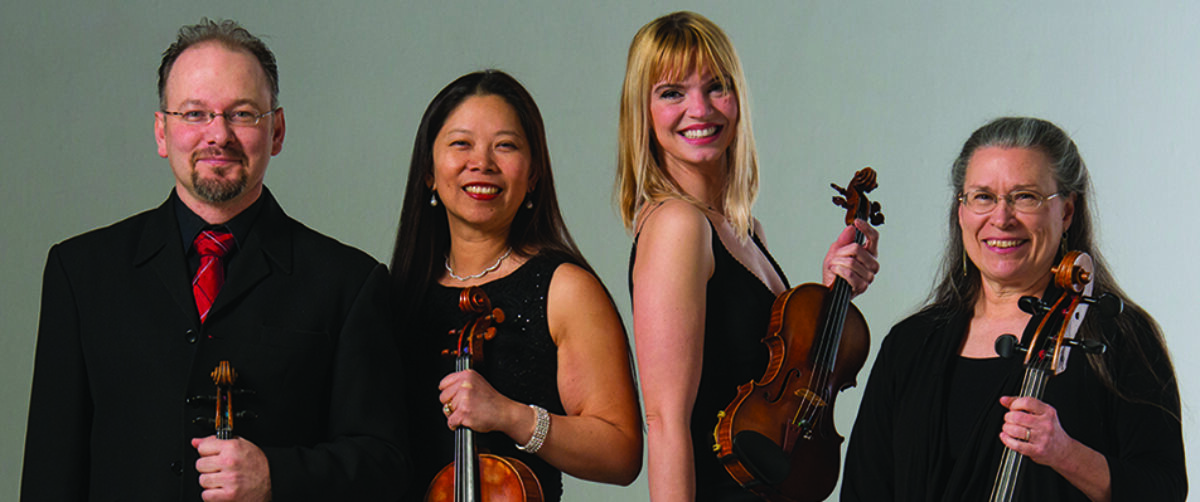The Spokane String Quartet opens its 2025-26 season with an appearance by Julia Pyke, principal flute for the Spokane Symphony, at 3 p.m. Sunday, Sept. 28, at The Fox Theater.
All seats are general admission. Tickets are $25 for adults, $20 for seniors and free for under 18 and students with ID. Tickets are available at this link or at the door.
Sunday’s program includes Gabriela Smith’s unconventional conteporary piece “Porcupine Wash,” Amy Beach’s Theme and Variations for Flute and Strings, Wolfgang Amadeus Mozart’s Flute Quartet No. 1 in D Major, K.285, and Carl Nielsen’s String Quartet No. 1 in G Minor, Op. 13.
Last fall Pyke was featured soloist when the Symphony performed Christopher Rouse’s Flute Concerto. She has also performed with the Oregon Symphony, the New World Symphony and members of the Cleveland Orchestra and the San Francisco Symphony. When she’s not playing the flute, Julia enjoys rock climbing, hiking, running, cooking and singing. In the spring of 2024, she made her theater debut as Grizabella in Spokane Civic Theater’s production of “Cats.”
About the program
With the acclaimed Boston Symphony Orchestra premieres of her “Gaelic” Symphony (1896) and Piano Concerto (1900), Amy Beach (1867-1944) became the first successful female American composer of large-scale symphonic music. During an age of gender bias and the woman’s suffrage movement, Beach became symbolic proof that women could creatively work and excel at the highest level in every field. The main theme from Beach’s “Theme and Variations for Flute and Strings” comes from her song “An Indian Lullaby” which depicts her romanticized impression of native life. Beach also studied authentic indigenous music, such as Inuit music collected in Labrador, to use in her musical exploration of “What is American Music?”
For 33-year-old Gabriella Smith, her lifelong passion for music, ecology, and play have creatively merged to compose sonic landscapes inspired by nature. She has been described as an environmentalist composer. Although deeply aware of climate change impacts and biodiversity loss, she sees her music as a call to action and the joy of working within communities on climate solutions. She delights in exploring new instrumental sounds by using extended techniques. In “Porcupine Wash” she prepares the strings by inserting paper clips to create her desired sounds.
Wolfgang Amadeus Mozart wrote that “Melody is the essence of music.” Mozart’s Flute Quartet No. 1, composed in 1777 at a youthful age 21, showcases his gift for creating music brimming with melodies of delightful beauty. The Flute Quartet is written in the “concertante” style, which features the flute taking a prominent solo role, with the strings providing vibrant accompaniment.
Carl Nielsen (1865-1931) from Denmark was among the major Nordic composers gaining prominence at the turn of the 20th century, including Edvard Grieg (Norway) and Jean Sibelius (Finland). They all shared a deep attachment to their homeland and its folk traditions. Nielsen’s String Quartet No. 1 was the first of four string quartets he composed. Though considered a youthful work, the quartet’s spirited rhythms, melodies and Danish folk-influenced harmonies all foreshadow Nielsen’s emerging dynamic voice well on the path to becoming one of Denmark’s finest composers.
